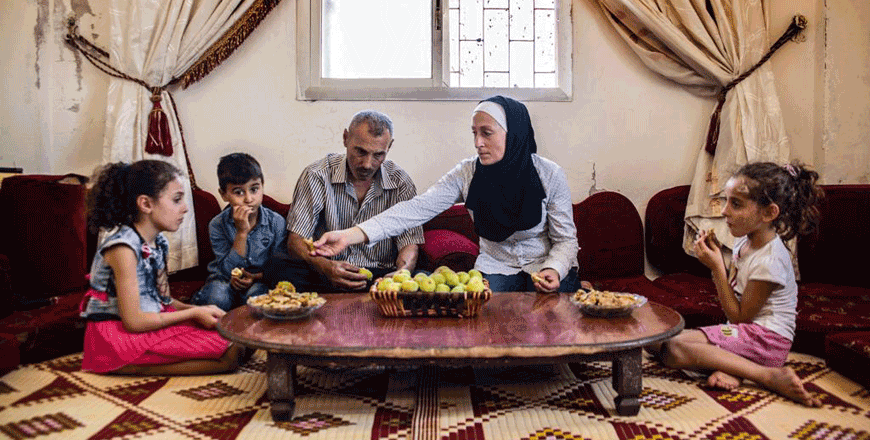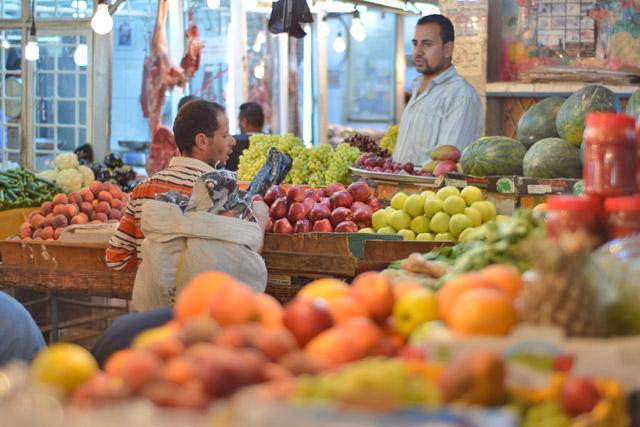You are here
Arab region ‘unlikely’ to achieve zero hunger SDG by 2030, warns UN report
By JT - Mar 29,2023 - Last updated at Mar 29,2023

The report examines the state of regional food security and provides analysis and recommendations on how to mitigate the situation (Photo courtesy of UN)
AMMAN — Hunger and malnutrition have reached critical levels in the region, as access to basic foods has been affected by the COVID-19 pandemic and the war in Ukraine, according to a recently published UN report.
FAO, IFAD, WFP, WHO, UNICEF and ESCWA released the results of the “2022 Near East and North Africa Regional Overview of Food Security and Nutrition: Trade as an Enabler for Food Security and Nutrition” report during an event in Cairo on Tuesday. The report examines the state of regional food security and provides analysis and recommendations on how to mitigate the situation.
The report reveals that an estimated 53.9 million people suffered from severe food insecurity in the Arab world in 2021, accounting for a 55 per cent increase since 2010. Moderate or severe food insecurity also continued along an upward trend, affecting an estimated 154.3 million people in 2021, an increase of 11.6 million people over the previous year, the report also warned.
In addition, it stated that the cost of a healthy diet in the Arab region has been increasing each year since 2017, reaching $3.47 per person per day in 2020.
In addition, the report highlights that the latest available estimates show that 28.8 per cent of the adult population (18 years and older) in the region is obese, more than double the global average.
While the Arab region was already off-track from achieving zero hunger and nutrition-related Sustainable Development Goal (SDG) targets, the pandemic and the war in Ukraine have exacerbated the situation by creating disruptions in supply chains and inflating the prices of grains, fertilisers and energy. Since the region depends heavily on imported food to meet its food security requirements, these crises have affected Arab countries disproportionately and aggravated food insecurity and malnutrition in the region, the report said.
In addition to these global events, climate change, conflicts and structural issues such as poverty and inequality add to the burden of achieving food security and improved nutrition in the region. Therefore, the UN partners have concluded that the Arab region is unlikely to achieve zero hunger (SDG 2) by 2030.
Trade is an essential enabler to ensure food security and nutrition by increasing the quantity and variety of food and decreasing its price for net-food importing countries. However, most of the countries in the region have not mainstreamed trade into food security policies; thus, relevant policies must be redesigned accordingly.
The report recommends that policymakers focus on policies facilitating food trade, such as reducing trade barriers, developing new free trade areas, promoting digital technologies and reducing non-tariff barriers.
The report calls on Arab countries to leverage intra-regional trade and rely more on each other’s capacities, as regional trade helps reduce food shortages during normal agricultural production cycles or supply chain disruptions caused by adverse and unforeseeable global events.
Related Articles
SARCELLES, France — Born and brought up in a gritty Paris suburb, Riyad Mahrez has gone on to become one of the leading players of his gener
AMMAN — HRH Prince Hassan, president of the Higher Council for Science and Technology (HCST), on Sunday launched a national initiative to im
AMMAN — The prevalence of undernourishment (PoU) in Jordan rose sharply following the start of the Syrian crisis, a recent report by the Foo















